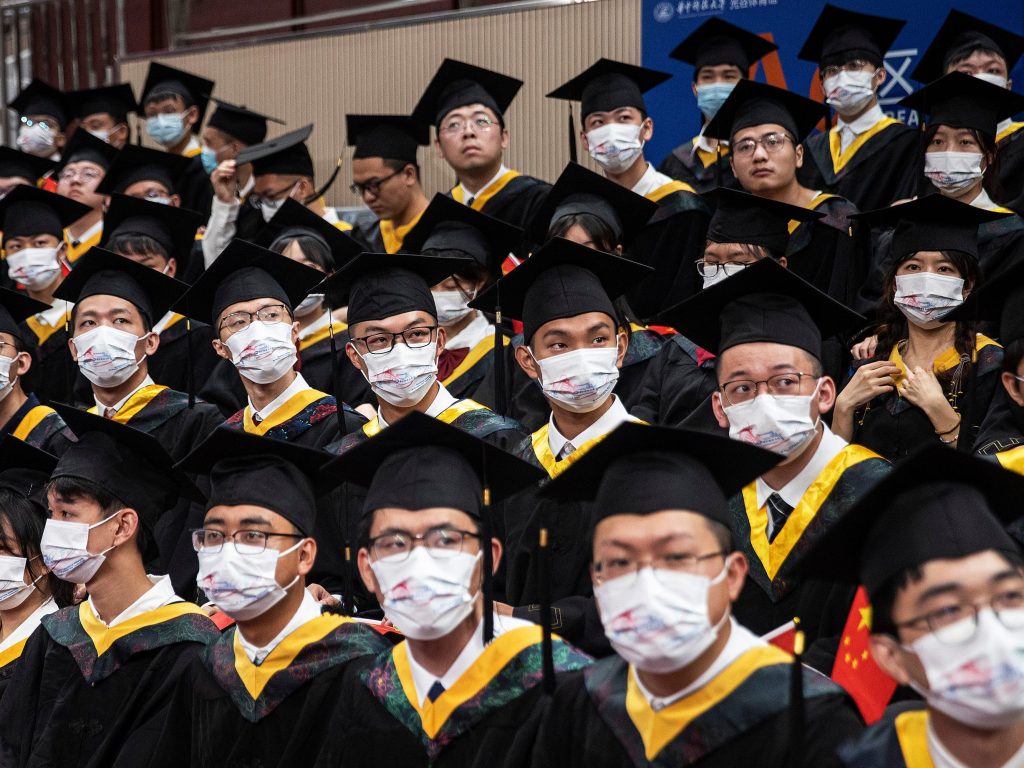- China's youth unemployment rate climbed to 18.4% — the highest recorded rate since 2018.
- The situation is expected to get worse as 10.78 million university students graduate this summer.
- Educated young job seekers often prefer to join big tech firms over the industrial sector.
China's Gen Zs, who grew up during the nation's golden era of economic progress, are facing a shrinking job market amid the country's slowest economic growth in decades.
As a result of prolonged, pandemic-driven lockdowns in Shanghai and Beijing between March and May, the World Bank projected that China's economic growth will slow to 4.3% in 2022 — 0.8% lower than its initial projection in December.
In May, the National Bureau of Statistics of China said the unemployment rate for youths aged 16 to 24 hit 18.4%. That's the highest recorded rate since the data was first published in January 2018, according to Caixin, a Beijing-based news publication. The figure is expected to increase when 10.78 million university students graduate this summer, per a June 2 statement by China's Ministry of Education.
The country's entry-level job market is bleaker than it was during the 2008 global financial crisis, with the number of new jobs falling by 20 to 30% from 2021, Rockee Zhang, the managing director for Greater China at recruitment firm Randstad, told Reuters in June.
"This year is a low point, the lowest I've seen," Zhang said.
Graduates are worried about their job prospects, too. Computer science graduate Jenny Bai told Reuters that a Beijing-based internet firm rescinded job offers to her and 10 other prospective candidates. "I'm worried," Bai said. "If I can't find a job, I'm not sure what I'll do."

China has plenty of manufacturing jobs, but educated graduates are not willing or trained to do them. Instead, many young job seekers are keen on joining big tech companies: An April report released by Tongdao Liepin Group, a China-based talent recruiter, showed a 19.67% year-on-year increase in job applications for big tech firms from fresh graduates.
To minimize youth unemployment, China is offering tax incentives and loans to entice graduates to open businesses in villages, per CNN. Small businesses in rural areas that hire graduates will also be given similar benefits.
However, some graduates fear the government initiative is akin to Mao Zedong's 1960s "Up to the Mountains and Down to the Countryside Movement" policy, where urban youth were shipped off to rural areas and wasted their best years learning farming from villages.
